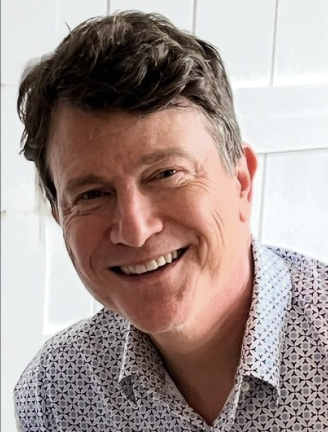One Lawyer’s Mission: To Help Refugees Obtain Asylum
WESTY Awards 2025. Seth Goodman Park, whose practice helps immigrants file asylum applications, says he takes seriously the Jewish commandment to welcome the stranger.

When Seth Goodman Park first moved to the West Side in 2017, someone told him to beware: New York City was a soulless concrete jungle whose inhabitants cared only for themselves. What he saw with his own eyes was, as he described half-jokingly, a group of people who “cared about others maybe at the expense of themselves.”
Park had already worked for more than two decades as a pro bono counsel for immigrants seeking asylum, legal permanent resident status, and naturalization in the US. It was a great relief for him to meet like-minded congregants at the Temple B’nai Jeshurun on West 89th Street and neighbors across the West Side, who too had worked on behalf of immigrants and formed the nucleus of a new professional and social ecosystem.
In 2022, the Rutgers Presbyterian Church on West 73rd Street helped sponsor the Asylum Support Clinic, which Park and other volunteers established to help immigrants navigate the often disorienting asylum application process. Park, serving as the clinic’s supervising attorney, told the West Side Spirit that the clinic has benefited from the time and efforts of hundreds of volunteers working in six-week cycles—on average, volunteers spend between 15 and 25 hours helping each immigrant write their applications and answer their questions.
“Immigrants already under the stress of taking care of themselves and their families in an unfamiliar place also have a time limit—within one year—to file their application,” he said. “It’s just been really gratifying to do the work of helping them along, and also to be among people in this community who really have a lot of generosity in spirit.”
The Asylum Support Clinic has served more than 150 immigrants since 2022, a part of the more than 1,000 immigrants that Park’s work has directly impacted over 30 years of practice. Like any other being lacking omnipotence, Park wishes he could help even more people, and is frustrated when what he and his clinic can do isn’t enough. “I’ve seen deserving cases be denied; it’s very hard to accept,” he said. “I try to be guided by the model that we are doing the best we can, that we are assisting many people who would definitely be worse off if we weren’t able to assist them.”
Because it is a clinic, the asylum group, rather than legally representing immigrants, counsels them on representing themselves. As a lawyer, Park still takes pay cases and separate pro bono work outside of his clinic, but by the time he moved to New York City he was looking for something more. He’s reached the point in his career where those cases are interesting to him in the way that a crossword or logic puzzle exercises the mind–but the clinic represents a human element that Park says offers a distinct sort of gratification.
Much of it circles back to his faith and experience as Jew whose forebears were refugees to the United States from Holland, Russia, and Poland. One of the highest Jewish concepts, he explained, borne from their centuries of wandering, was that of welcoming strangers with open arms.
“I’m very conscious of that, and it’s something that thrives in the back of my brain when I walk into clinic on Tuesday nights,” he said. “My people were once refugees. My own personal family was welcomed here, and so we are obligated to make other people welcome as well.”
I try to be guided by the model that we are doing the best we can, that many people would definitely be worse off if we weren’t able to assist them. — Seth Goodman Park